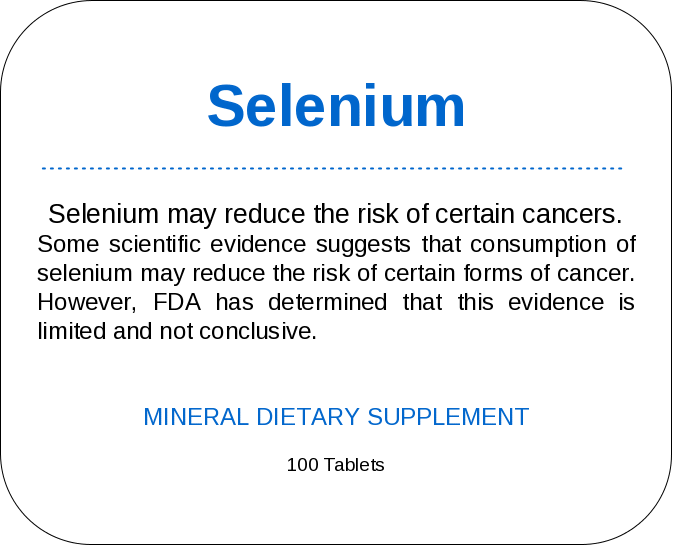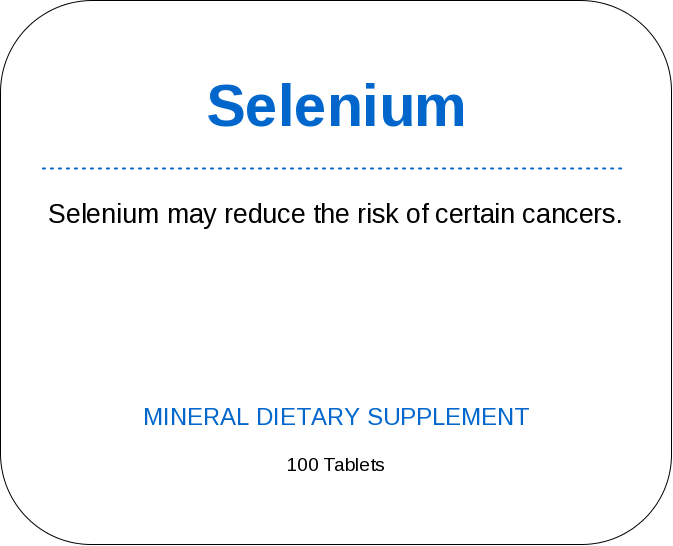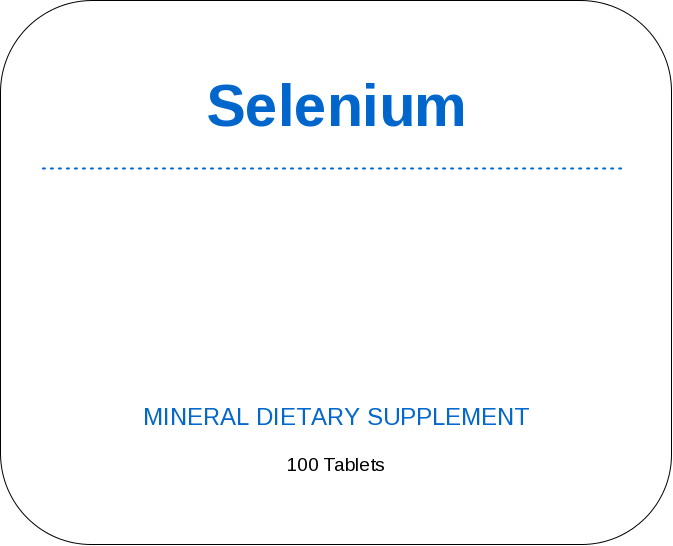Appendix A
Selenium Study Appendix A.doc
Experimental Study; Health Claims and Disclaimers About the Relationship Between Selenium and Risk of Various Cancers
Appendix A
OMB: 0910-0725
Appendix A. List of Disclaimer Statements and Controls
In the experimental conditions, disclaimers 1 through 4 will be tested in combination with the claim “Selenium may reduce the risk of certain cancers.”
1. Some scientific evidence suggests that consumption of selenium may reduce the risk of certain forms of cancer. However, FDA has determined that this evidence is limited and not conclusive.
2. Limited scientific evidence suggests that taking selenium may reduce the risk of some, but not all, kinds of cancer. However, this evidence is inconclusive.
3. Some scientific evidence suggests that taking selenium may reduce the risk of bladder, colon, prostate, rectal, and thyroid cancers, but not other kinds of cancer. However, FDA has determined that the evidence about reduced risk of these cancers is inconclusive.
4. However, the evidence of risk reduction is inconclusive and limited to bladder, colon, prostate, rectal, and thyroid cancer. Because each kind of cancer is different, factors that reduce the risk of one cancer may not reduce the risk of others. Selenium cannot completely prevent any kind of cancer.
Disclaimers 5 through 9 will be tested in combination with the claim “Selenium may produce anticarcinogenic effects in the body.”
5. Some scientific evidence suggests that consumption of selenium may produce anticarcinogenic effects in the body. However, FDA has determined that this evidence is limited and not conclusive.
6. However, the evidence of anticarcinogenic effects is inconclusive and limited to reducing the risk of bladder, colon, prostate, rectal, and thyroid cancer. Although selenium may reduce your risk of getting these cancers, selenium cannot treat, cure, or completely prevent any kind of cancer.
7. Some scientific evidence suggests that taking selenium may produce anticarcinogenic effects limited to reducing the risk of bladder, colon, prostate, rectal, and thyroid cancer. However, this evidence of risk reduction is inconclusive. Selenium does not treat, cure, or completely prevent any kind of cancer.
8. Some scientific evidence suggests that taking selenium may produce anticarcinogenic effects limited to reducing the risk of bladder, colon, prostate, rectal and thyroid cancers, but this evidence is inconclusive. “Anticarcinogenic effects” means only reducing the risk of cancer in people who do not have it. Selenium does not treat or cure any kind of cancer.
9. Some scientific evidence suggests that taking selenium may produce anticarcinogenic effects limited to reducing the risk of bladder, colon, prostate, rectal and thyroid cancers. However, this evidence is inconclusive. Each kind of cancer is different, and selenium does not treat or completely prevent these cancers or any other kind of cancer.
The claims plus disclaimers will appear as shown in the sample mock-up in Appendix B.
In addition, three control conditions will be included:
Control 1: No claim or text other than the product identity.
Control 2: Selenium may reduce the risk of certain cancers.
Control 3: Selenium may produce anticarcinogenic effects in the body.
Appendix B. Sample Label Mock-ups
A sample label mock-up that includes a claim and disclaimer is shown below.

A sample label mock-up that includes a claim only is shown below.

A sample label mock-up that includes only product identity information is shown below.

| File Type | application/msword |
| File Title | [Insert Title of Information Collection] |
| Last Modified By | Bean, Domini |
| File Modified | 2012-09-17 |
| File Created | 2012-09-17 |
© 2026 OMB.report | Privacy Policy